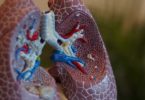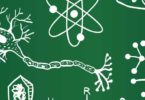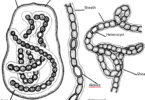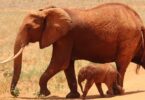‘First line of defense’ is known as
(a) Antibodies
(b) WBC
(c) Skin
(d) Liver
A disease that has become unusually widespread and even global in its reach is referred to as
(a) Epidemic
(b) Pandemic
(c) Spanish flu
(d) Hyperendemic
A person suffering from malaria feels fever when:
(a) RBC generally ruptures and haemozoin granules are released.
(b) Exo-erythrocytic cycle is completed
(c) Singnet ring stage is formed
Which of the following is primarily concerned with protection against germs?
(a) Liver
(b) Lymphatic tissue
(c) Kidney
(d) Thyroid
A person exposed to a cold environment does not show
(a) Shivering
(b) Vasoconstriction of peripheral vessels
(c) Increased secretion of thyroid and adrenal medulla
(d) Increased heart beat and volume per stroke
Related: Phylum Porifera questions
Mumps is a disease caused by
(a) Virus
(b) Bacteria
(c) Fungi
Edward Jenner discovered
(a) Vaccination against polio
(b) Immunization against polio
(c) Vaccination against small pox
(d) Immunization against small pox
A disease which spreads by contact
(a) infection
(b) contagious
(c) contiguous
(d) uxoring
Hypersensitivity towards any foreign material or particle is known as
(a) Hypergenital disease
(b) Congenital disease
(c) Cancer
(d) Allergy
Related: Quiz – Human Population Growth
The cells which suppress the entire immune system from its attack in the same body are known as
(a) Helper T–cells
(b) Killer B–cells
(c) Suppressor cells
(d) Suppressor T–cells
Phenylketonuria is a genetic disease which refers to
(a) Phenylalanine is more in body fluid or urine
(b) Phenylalanine decrease in tissue
(c) Urine is light in color
(d) Sugar absent in the urine
The cause of Typhoid fever is
(a) Giardia
(b) Clostridium
(c) Schistosoma
(d) Salmonella
After vaccination the body builds up
(a) Toxins
(b) Lymph
(c) Antibodies
(d) Plasma
The disease of the cardio-vascular system is caused by
(a) Mycoplasma
(b) Cyanobacteria
After infection with germs, immunity is acquired is
(a) Active immunity
(b) Passive immunity
(c) Natural immunity
Related: MCQ on Biomass Energy
‘Vaccination’ was invented by
(a) Pasteur
(b) Edward Jenner
(c) Robert Koch
(d) Robert Hooke
Antibodies fight against
(a) Infection
(b) Thirst
(c) Starvation
(d) Stress
Tuberculosis generally affects
(a) Kidney
(b) Stomach
(c) Lungs
(d) Skin
The immune system which works against self is
(a) Self-immune system
(b) Autoimmunity
(c) Specific immunity
The antigen is
(a) Opposite to an antibody
(b) Residue of an antibody
(c) Stimulus for antibody formation
(d) Result of antibody
Related: Important MCQs on Current Electricity
The poisons produced in the body by bacteria are called
(a) Toxins
(b) Antitoxins
(c) Toxicoids
(d) Wastes
The function of a vaccine is the production and storage of
(a) Antigens
(b) Immune bodies
(c) Immune reactions
(d) Antibodies
Vaccines are prepared for immunity
(a) Vitamins
(b) Blood
(c) Serum
(d) Plasma
Organ affected by pneumonia
(a) Liver
(b) Kidney
(c) Heart
(d) Lungs
Which of these is not a mosquito-borne disease?
(a) Dengue fever
(b) Malaria
(c) Filariasis
(d) Goiter
Related: kingdom Animalia quiz
Agents which produce allergies are known as
(a) Antigens
(b) Allergens
(c) Oncogens
Which disease among the following spreads when affected persons excreta gets mixed with drinking water?
(a) Cancer
(b) Cholera
(c) Tuberculosis
(d) Asthma
Lacking of B–cells and T–cells is known as
(a) Cytotoxins
(b) Toxigenicity
(c) Immune deficiency
(d) Autoimmunity
Related: Amines practice problems
Mumps is a viral disease that causes inflammation of
(a) Parotid gland
(b) Sublingual gland
(c) Submaxillary gland
(d) Infra-orbital gland
Uncontrolled and undifferentiated mass of cells is known as
(a) Tumor
(b) Overgrowth
(c) Cancer
(d) Hypertrophy
Widal test is used for susceptibility of
(a) Malaria
(b) Typhoid
(c) Cholera
(d) Yellow fever
AIDS is caused by
(a) Blood cancer
(b) HTLV–III
(c) Bacterium
(d) TMV
Related: Biotechnology MCQ (Multiple Choice Questions)
Antibodies are produced by
(a) Erythrocytes
(b) Thrombocytes
(c) Monocytes
(d) Lymphocytes
Typhoid and Cholera are typical examples of
(a) Infectious disease
(b) Air borne disease
(c) Water borne disease
An antibody is
(a) Molecule that specifically inactivates an antigen
(b) WBC, which invades bacteria
(c) Secretion of mammalian RBC
(d) Component of blood
Plasmodium causes
(a) Malaria
(b) Cholera
(c) Eye defect
Related: Work, Energy and Power Questions
AIDS can be transmitted by
(a) Blood circulation
(b) Hand shake
(c) Courtship
What is the common name for trypanosomiasis?
(a) Cooking disease
(b) Sleepy sickness
(c) Sleeping sickness
(d) Parkinson’s disease
Which part of the body is known as ‘Police guard‘?
(a) Tonsils
(b) Liver
(c) Skin
(d) Leucocytes
Some people who have suffered from a disease may not be affected again during their lifetime; such immunity is called
(a) Natural immunity
(b) Acquired immunity
(c) Active immunity
(d) Passive immunity
Related: Drug trivia questions
‘Blood cancer’ is also known as
(a) Leucopenia
(b) Leucoderma
(c) Leucocytosis
(d) Leukemia
Alexender Flemming in 1929 discovered
(a) Penicillin
(b) Streptomycin
(c) Tetracyclin
(d) Chloromycitin
How does the AIDS virus enter into people?
(a) Through food
(b) Through kissing
(c) Through water
(d) Through blood
Diabetes mellitus is due to lack of
(a) Insulin in circulating blood
(b) Starch in food
(c) Trypsin in pancreatic juice
(d) ADH reaching the kidney
Related: Solid state mcq question
Which one of the following pairs of disease can spread through blood transfusion?
(a) Cholera and hepatitis
(b) Hepatitis and AIDS
(c) Diabetes mellitus and malaria
(d) Hay fever and AIDS
The term ‘active immunity’ means
(a) Resistance developed after disease
(b) Resistance developed before disease
(c) Resistance rate of heart beat
(d) Increasing quantity of blood
Related: areas of parallelograms and triangles extra questions
‘Dengue fever’ is caused by
(a) Bacteria
(b) Plasmodium
(c) Virus
(d) Entamoeba histolytica
Hypersensitive towards any foreign material or particle is known as
(a) Hyper-genital disease
(b) Congenital disease
(c) Cancer
(d) Allergy
DPT vaccine given for
(a) Tetanus, polio, plague
(b) Diphtheria, whooping cough and leprosy
(c) Diphtheria, pneumonia, tetanus
(d) Diphtheria, whooping cough, tetanus
Malaria is caused by
(a) Ascaris
(b) Foul air
(c) Plasmodium
(d) Mosquito
Which of the disease is not transmitted by house flies?
(a) Typhoid
(b) Yellow fever
(c) Cholera
(d) Dysentery
Which of the following diseases is endemic?
(a) Common cold
(b) Amoebiasis
(c) Hepatitis
(d) Influenza
Related: Equilibrium practice problems
The term”antibiotic” was coined by
(a) Alexander Fleming
(b) Edward Jenner
(c) Louis pasteur
(d) Selman Waksman
Which is a water–borne disease?
(a) Small pox
(b) Malaria
(c) Tuberculosis
(d) Cholera
Laborers who do hard manual labor develop thick skin on their palms and soles due to:
(a) thick epidermis
(b) thick dermis
(c) thick subcutaneous tissue
(d) All of these
‘Tuberculosis’ is caused by
(a) Virus
(b) Bacterium
(c) Malnutrition
(d) Protozoan
Immune deficiency syndrome in humans could develop as a consequence of
(a) AlDS virus infection
(b) Defective thymus
(c) Defective liver
(d) Weak immune system
A dehydrated person should not drink
(a) Tea
(b) Coffee
(c) Seawater
(d) Alcohol
‘Plague’ is transmitted by
(a) House fly
(b) Tse–tse fly
(c) Rat flea
(d) Mosquito
Related: Food chain quiz
Ricket is a disease of
(a) Bones
(b) Liver
(c) Muscles
(d) Blood
Night blindness is caused due to
(a) excess secretion of pineal gland
(b) Vitamin A deficiency
(c) inheritance by X-chromosome
(d) less drinking water
Which of the following food items is rich in iron?
(a) Rice
(b) Apple
(c) Pulses
(d) Orange
Viral and bacterial diseases can be controlled by
(a) Change in the height of crops
(b) Plucking the weeds
(c) Distruction of vectors
(d) Seeds treated with water
The most dreadful disease transmitted through blood transfusion is
(a) Malaria
(b) Syphilis
(c) Viral hepatitis
(d) AIDS
The period from the entry of pathogens into the body and their multiplication showing initial symptoms of disease is known by
(a) Incubation period
(b) Onset period
(c) Climex period
(d) Infection period
Hodgkin’s disease in which lymph nodes produce excessive lymphocytes is
(a) Carcinoma
(b) Sarcoma
(c) Lymphoma
(d) Leukemia






